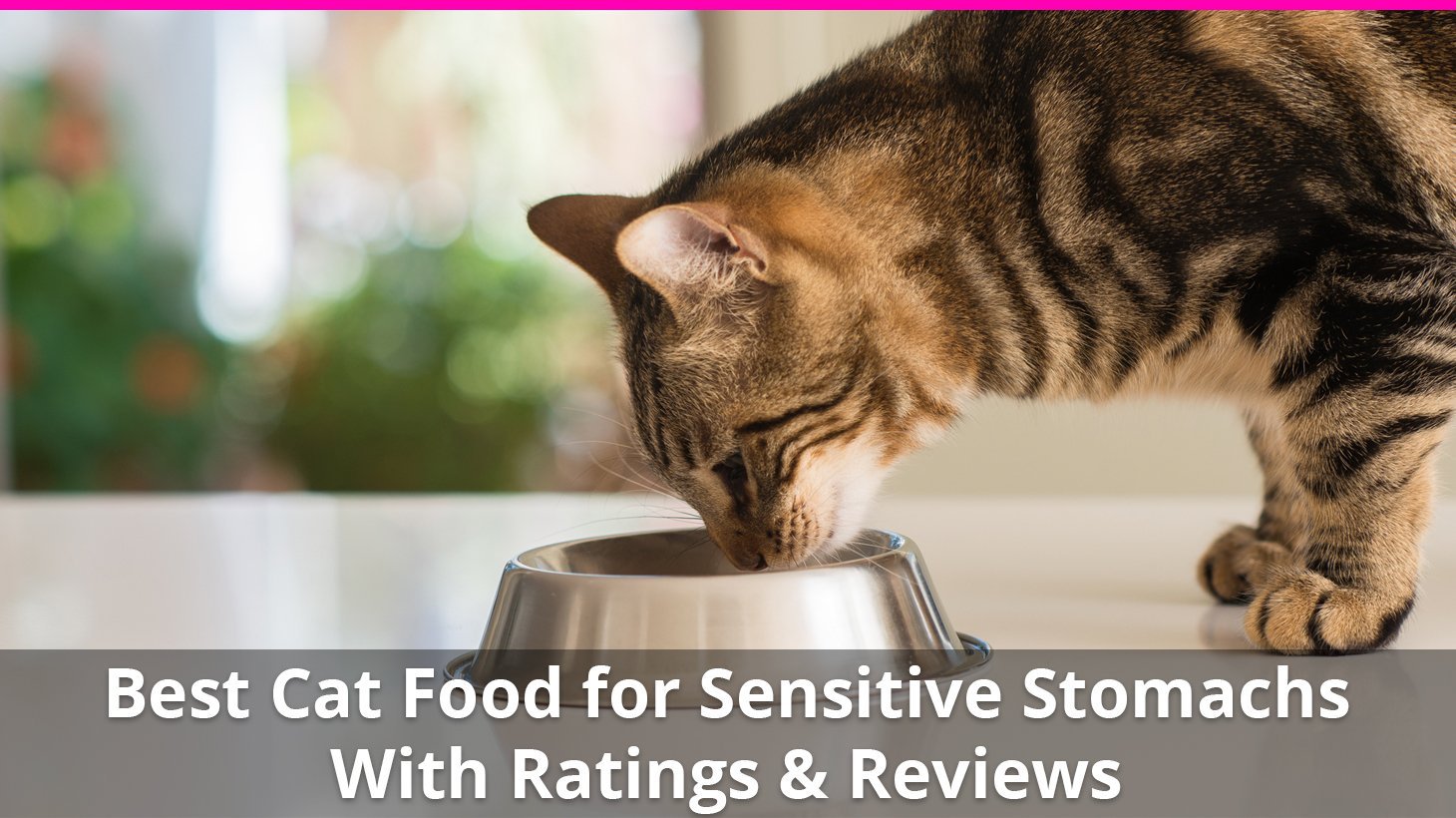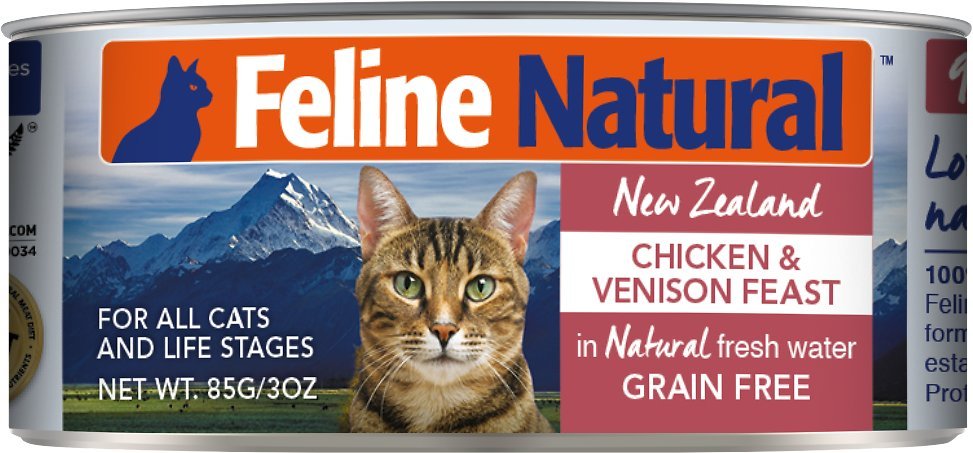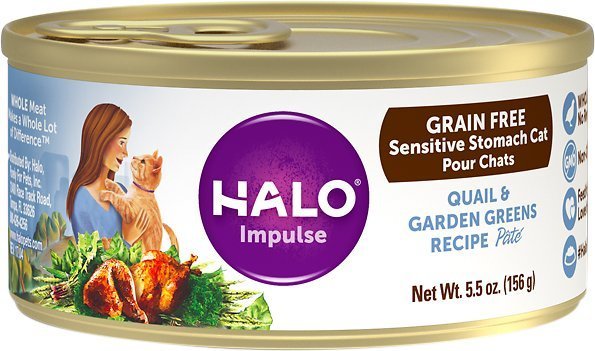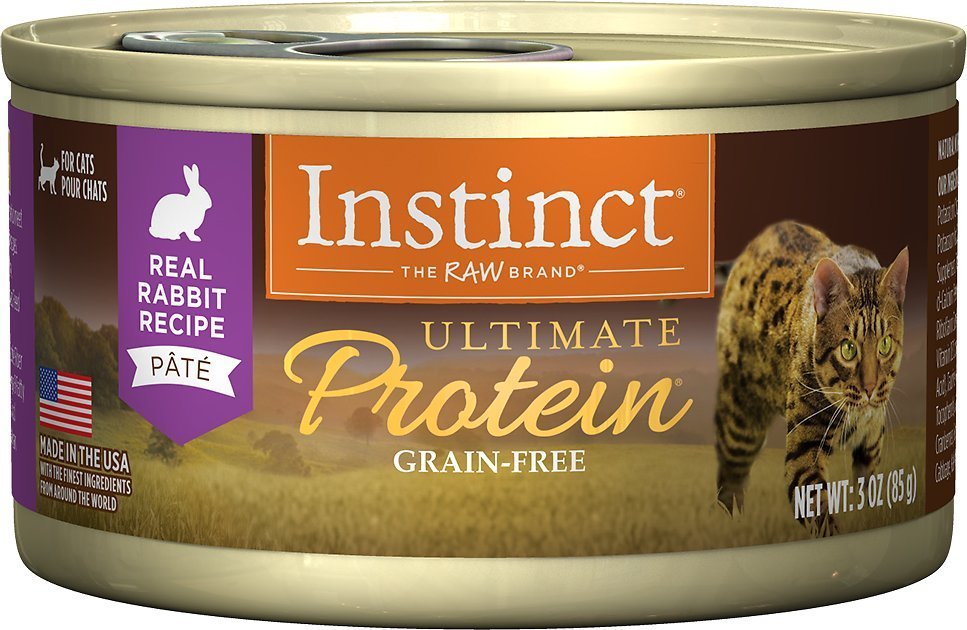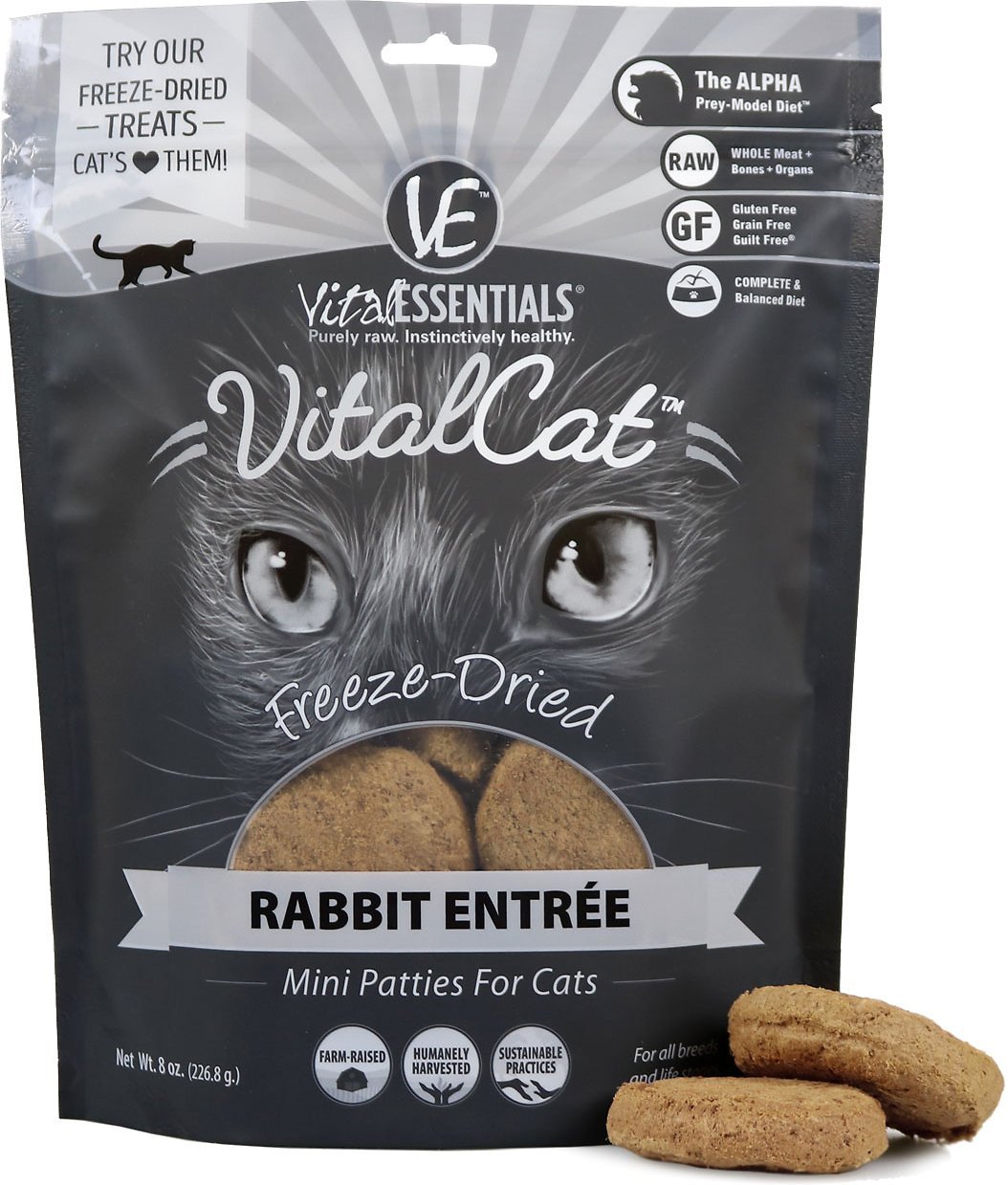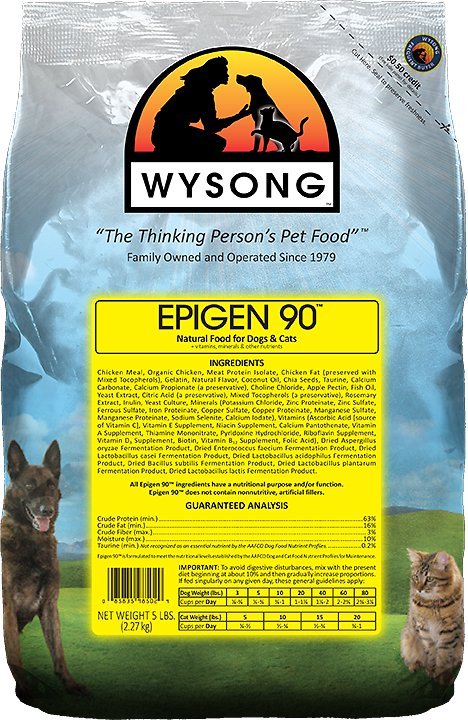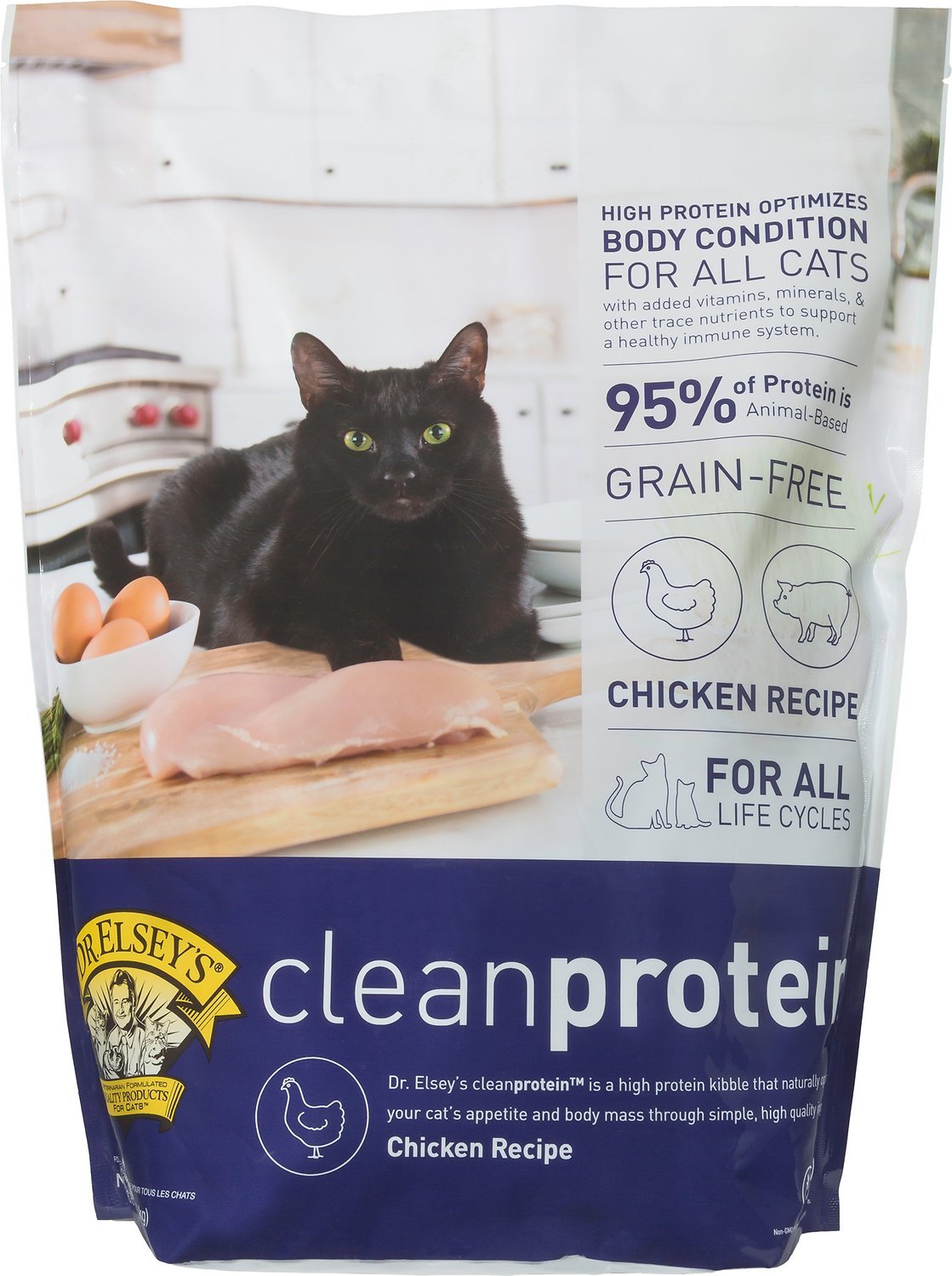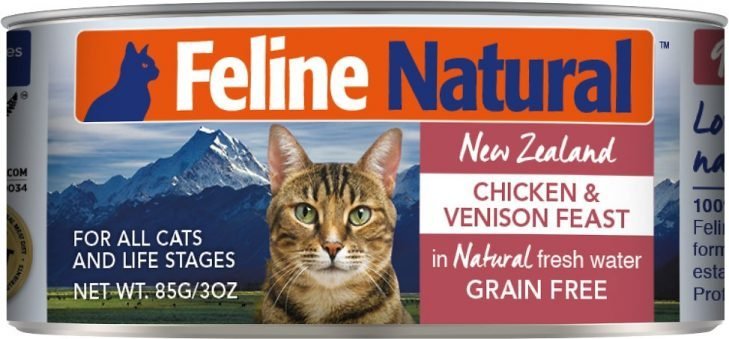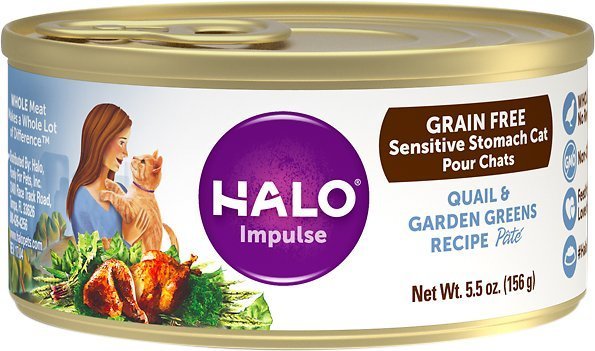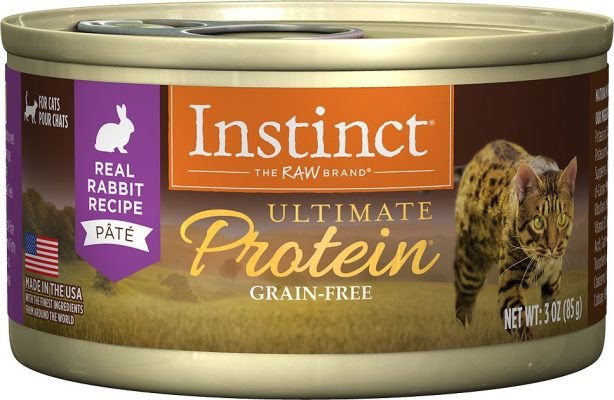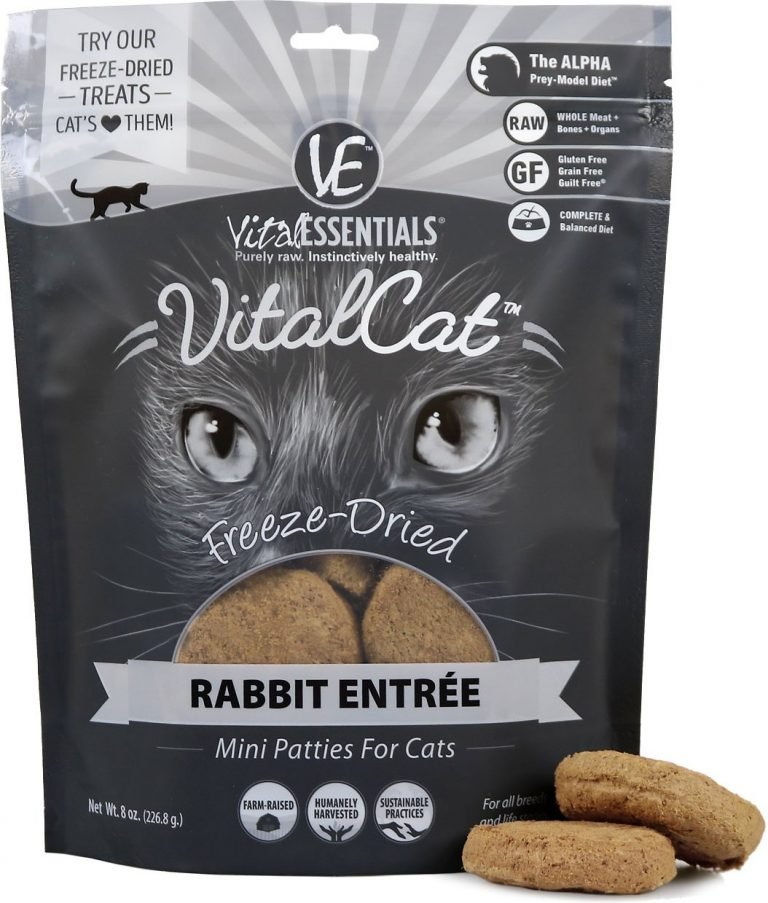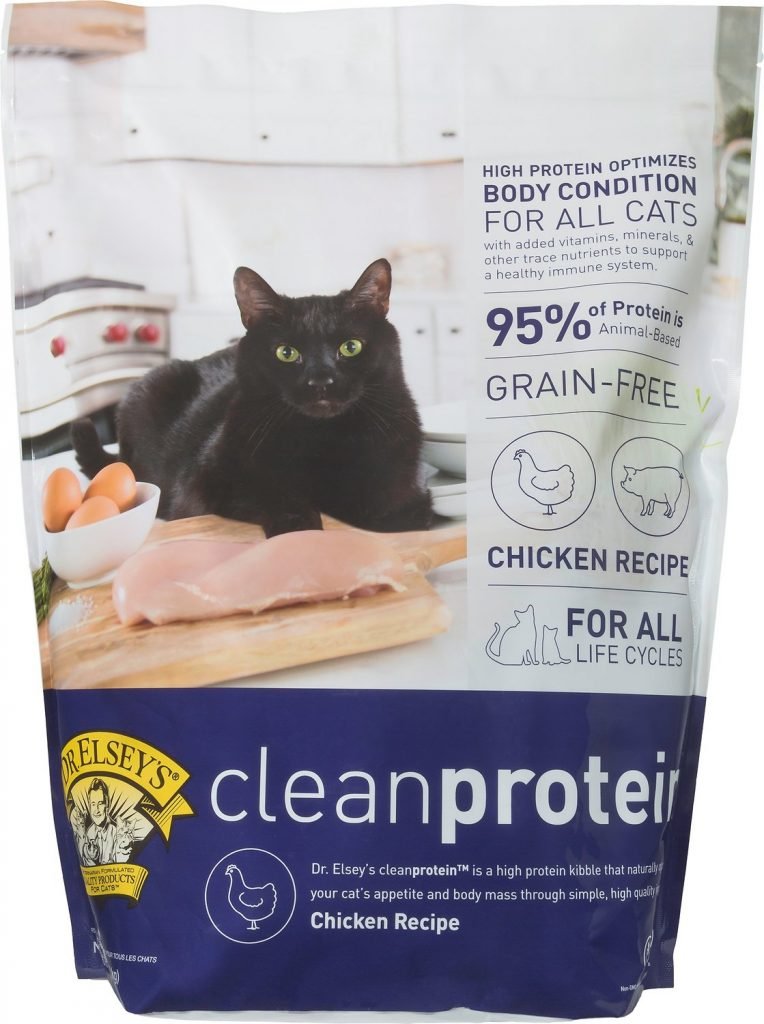Having a cat with a stomach troubles is no fun!
The culprit is usually, though not always, their food.
Many cats with sensitive stomachs simply need to be switched to a better quality food, or a food without ingredients that trigger the sensitivities.
While “sensitive stomach” is a bit of a catch-all term, it usually means your cat vomits or has diarrhea, or is otherwise in clear gastrointestinal distress.
There’s a lot of misinformation out there with regards to the best cat food for sensitive stomachs, so below we’ll walk through important information, as well as how we made our picks.
Because not only do you want to fix your cat’s upset tummy, you want to give her a healthy, happy, and long life, right?
Let’s dive in!
Our review process is unbiased and based on extensive research. If you buy through the links on our site, we may earn a commission.
Quick-Find Best-In-Class Table
Editor’s Choice
Feline Natural Grain-Free
- Amazing cuts of meat
- Very limited ingredient
- Near-perfect macronutrient profile
Instinct Ultimate Protein
- Novel protein sources for allergies
- Very limited ingredient
- Includes anti-diarrhea ingredients
Vital Essentials Mini Patties
- Most “natural” and bioavailable of all foods
- Almost no added ingredients
- Freeze dried for convenience
Wyson Epigen 90 Starch Free
- Best dry food overall
- Zero filler ingredients
- Incredibly high protein, no carbs
Why Do Some Cats Have Sensitive Stomachs?
The first thing you should try to figure out is why exactly your cat has a sensitive stomach.
Is it an allergy?
A problem digesting certain ingredients?
Parasites?
It could be anything, really, even down to a specific ingredient, so it can be hard to find out for sure.
Cat Food for Older Cats with Sensitive Stomachs
Some senior cats can develop sensitive stomachs and have a hard time digesting food that they previously gobbled down just fine.
It’s true that the digestive processes change slightly as cats age, and so you might simply need to make the switch to a senior-specific cat food.
See our reviews of the best cat food for older cats here.
Cat Food for Kittens with Sensitive Stomachs
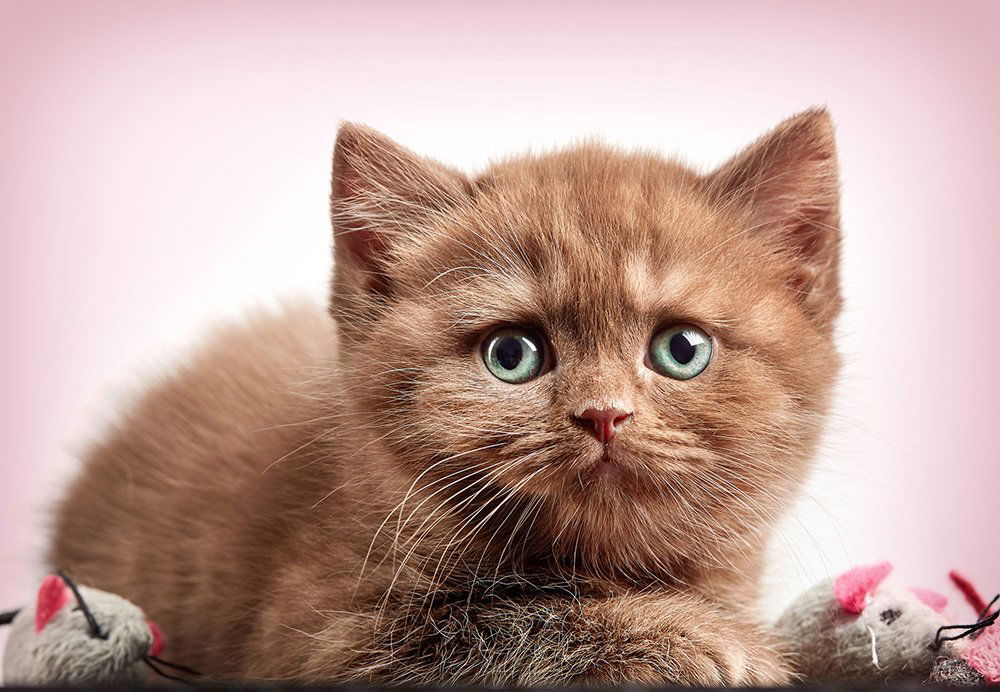
Kittens are finicky little creatures, and their tastes can change in an instant.
However, one of the best ways to ensure your baby cat is getting all the nutrients she needs without any of the usual suspects of stomach upset is to feed her a kitten-specific cat food.
See our reviews of the best kitten food here.
Digestive Problems To Look Out For
Some cats simply can’t digest certain ingredients, much like humans.
Think of celiac disease and gluten, or any other food that is known to hurt some guts.
We may not know why an individual cat doesn’t digest a certain food properly, but we can certainly do something about it!
The first thing you can do is to check the ingredient label of the food (and treats!) you’re giving her.
Some of the biggest contributors to stomach problems with cats are:
- Dairy
- Wheat
- Grains
- Food Coloring
- Artificial Additives
- Over-reliance on Dry Food
Cats are actually lactose intolerant, so anything with dairy in it might be causing your cat problems.
Yes, even though cats and a saucer of milk seem to go together hand in hand, they’re not meant to be!
Cat’s aren’t very good digesting wheat and grains, because they’re obligate carnivores…which just means that they require the amino acids found in the proteins of animals to survive and thrive.
TONS of popular cat foods are absolutely stuffed with grains, so you may want to consider a grain-free alternative (which we’ll be giving you below).
Unfortunately some brands add food coloring to their food.
That’s kind of ridiculous, since cats don’t see or care about the color of their food.
It’s just done to appear more appealing to consumers – people like you and me who buy food for our furry friends.
Some common food coloring agents are actually quite bad for your cat, so make sure your cat food doesn’t include any – including the ones that just sound like healthy minerals!
Artificial additives are things like synthetic preservatives and man-made thickening agents. These have no place in a cat’s body, and you’ll typically only find them in the cheapest cat foods.
An over-reliance on dry cat food can also cause stomach issues, especially when your cat isn’t drinking enough water to go along with all the dry food.
Cats are built to process raw food that they’d catch in the wild – food that is made up of about 70% moisture.
Dry cat foods typically have 8-12% moisture, which is especially bad when you consider that cats don’t have a strong thirst drive.
Chronic dehydration from dry foods can lead to all sorts of issues, including stomach upset and more serious problems like FLUTD.
Can Cats Have Allergies That Cause Digestive Issues?
Yes, cats can have allergies, and they might cause stomach distress!
Cats can be allergic to all sorts of things, like:
- Beef
- Dairy
- Chicken
- Corn
- Additives and preservatives
It’s strange, I know, but if your cat develops an allergy to a common food ingredient like chicken, it can seem impossible to find a solution.
Luckily, some brands offer “novel protein sources”.
These novel protein sources are things like venison or duck…ingredients your cat has likely never come across. It’s very unlikely that she’ll be allergic to these proteins, and they’re often a lifesaver for cats with stomach problems due to allergies.
We’ll review some of these novel sources below.
Parasites That Cause Digestive Distress
Cats can be afflicted by roundworms, tapeworms, hookworms, whipworms, and more.
Sometimes these worms can interfere with the digestive process, essentially “stealing” nutrients before your cat’s body has had a chance to digest them.
We covered the most common types of worms, plus the best dewormers here.
Frequent Vomiting and How To Stop It
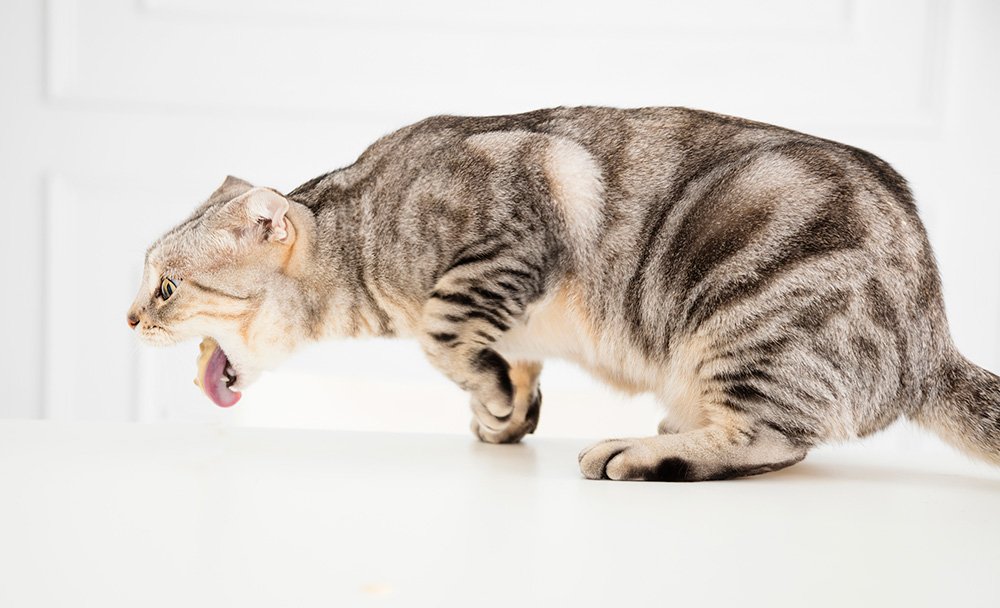
One of the major issues you might be seeing that convinced you to check out this page is frequent vomiting.
It’s one of the most common ways cats can show us that something is up.
There are a couple of most likely reasons that this happens.
1. Eating Too Fast
This one isn’t all that bad, actually, since there are things we can do to slow down a cat’s eating.
One way is to break up the feeding schedule into multiple small meals throughout the day.
This way Kitty can never eat enough food to fully engorge her belly and make her sick.
You can do this either manually by giving her a set amount of food in a bowl at certain times through the day, or you can automate it with an automatic cat feeder.
There are also “slow feed” bowls that are more like a game than a bowl. They have ridges and valleys and nobs and all sorts of things that get in your cat’s way when she’s trying to eat. She’ll have to navigate around all the soft poky bits in order to get all the kibble.
2. A Sensitivity To The Food She’s Eating
This comes back to what we’ve already discussed.
If your cat is vomiting because she’s having a reaction to one of the ingredients in her food, the best thing you can do is pick one of the foods we recommend below, and try feeding that to her over a short period (between 2-6 weeks).
If you notice she vomits less on the new food, then you can be pretty sure you’ve discovered the problem.
If not, try another food that is quite different, though still high-quality.
If that doesn’t work, it might be time to take her to the vet to get it looked into.
What Makes A Cat Food The Best For Sensitive Stomachs?
OK, so we’ve talked about a lot of different things that might be causing your cat’s sensitive stomach, but what should you be looking for when it comes to feeding her the best cat food for sensitive stomachs?
Your first goal should always be to provide a high quality, biologically appropriate food that will allow your cat to get all the nutrients she needs, without giving her filler ingredients.
A good cat food can improve health, improve happiness, and literally increase life span!
We recommend sticking with the following broad recommendations:
- Meat as the first ingredient
- Grain-free
- Little to no filler ingredients
- No coloring additives
- High protein, low carbohydrate
- Choose a novel protein if you’re concerned about allergies
We should also note that some brands out there have specific formulas marketed as being designed for sensitive stomachs.
In most cases, these are NOT good cat foods!
We don’t recommend foods like Hill’s Science Diet or Blue Buffalo when it comes to finding a sensitive stomach cat food.
The first thing you must always look at are the ingredients, not what the food is named by the marketing department.
Your cat will NOT be happy (or healthy) if you pick a big-brand “sensitive stomach” food that is full of corn, has low quality cuts of meat, and doesn’t have enough protein.
How To Introduce Your Cat To A New Food
Once you pick a new food to try out, you should work diligently to introduce it gently.
This usually means that over the course of a week, you introduce a little bit of the new food into the old food every day.
- So on day one, you’d feed 80% old food and 20% of the new food.
- On day two or three, feed 60% old food and 40% new.
- On day four or five, feed 40% old food, and 60% new.
- On day six or seven, feed 20% old food, and 80% new.
- On day eight or nine, feed 100% new food.
Once you’ve fully transitioned, keep detailed notes of how your cat is reacting.
- Is she vomiting less?
- Has her diarrhea improved?
- Is she more active?
If she improves, great work, you’ve found the problem and have helped your kitty get healthy!
If not, you might want to test one more food that is quite different from the first two.
If that still doesn’t alleviate the issues, you may want to talk to your vet.
How We Choose The Best Cat Food For Sensitive Stomachs
First and foremost, the best cat food for sensitive stomachs MUST be a good overall food.
That means that it must be high in protein, low in carbohydrates, moderate in fat, have few or no fillers, and have a lot of meat.
Because of this, we’ve only selected foods from our database that are scored way above average.
We’ve also selected a couple of options with novel ingredients (like venison) in case allergies are the issue.
We’ve tried to choose foods that are fairly limited-ingredient, which means your cat’s body doesn’t need to process a ton of different things all at once. This is a good way to reduce the likelihood that she’s consuming something that bugs her tummy.
All the foods below are also grain-free. Cat’s don’t need grains and would never eat them in the wild, so it’s safer to just completely remove them from your kitty’s diet.
Now, how did we pick these specific foods?
We have a massive database of cat foods (over 2000+ foods), which we’ll explain a little bit more below. But it’s important to mention what criteria we used when creating this list of the best foods for sensitive stomachs.
In our list of foods, we rate them from 1-5 using 5 different grading points. The cat foods below are all AT LEAST a 4 out of 5 stars. That means they’re much better than average.
What Cats Actually Want To Eat
Studies on both indoor, commercially-fed cats, and feral and stray cats show that cats will self-select food sources that result in a macronutrient profile in this range (dry-matter basis used):
- Protein: 52-63%
- Fat: 22-36%
- Carbohydrate: 2.8-12% (with “wild” cats on the very low end of this range)
What we believe this shows is that cats have evolved to thrive on a high protein, moderate fat, and low carb diet.
How We Rate Foods
Our database of cat foods contains over 2000 individual foods.
We collected all the relevant information on each product, including:
- AAFCO Rating
- Ingredient list
- Macronutrient profiles (Guaranteed Analysis, Dry-Matter Basis, and Caloric Basis)
- Price and price per pound
- Calories per 100 grams
- Whether meat is the first ingredient
- How each food compares to the average of all foods on a macronutrient basis
- Whether the recipe uses more than 4 controversial ingredients
Each of these data points works together to form a star rating on a 1-5 star scale (including half points).
- If the food’s first ingredient is meat, it gets 1 point.
- If the food does not use unnamed meat ingredients (“meat by-products”), it gets 1 point.
- If the food has an above average protein level on a dry-matter basis, compared to all other foods in the database, it gets 1 point. If it has an average amount, it gets .5 points.
- If the recipe contains fewer than 4 controversial ingredients (not necessarily bad ingredients), it gets 1 point. If it contains exactly 4 it gets .5 points.
- The final available point is a discretionary point that we award based on things like carbohydrate content, inclusion of probiotics and vitamins, and other points, and is our judgement call on a food’s quality and biological appropriateness for your cat.
We think that this system provides a fair, transparent system by which we can compare all foods on an equal footing, and give you the easiest possible time when choosing the best of the best.
Reviews Of The Best Sensitive Stomach Cat Food
Reviewing The Best Wet Cat Food for Sensitive Stomachs
We absolutely love Feline Natural.
Their foods are so limited ingredient, they use amazing ingredients, and this one even includes a novel protein (venison).
It’s packed with amazing organ meats like liver, kidney, and heart.
This is important, because organs are packed not only with protein, but also with micronutrients, which muscle meats lack.
A cat will often eat the organs first in the wild, showing us just how much they love (and required) them.
Otherwise, there’s not a lot else in here, which is perfect for kitties with sensitive stomachs.
Blood for more nutrients, flaxseed flakes for fiber, some kelp for added micronutrients, and then vitamins and minerals.
The only other thing is New Zealand Green Lipped Mussels, which are an AWESOME ingredient.
They’re packed full of vitamins and minerals that help support joint health, making this a fantastic food not only now, but into your cat’s older years, too.
This food makes it very easy to isolate any trouble ingredients, AND it’s perfect for keeping your cat healthy and happy.
>> Tap Here To Read More Reviews And Get Today’s Best Price on Chewy <<
This is literally the only food that calls itself “sensitive stomach” that we rated over 4.5 in our entire cat food database (2000+ foods!).
So while we did warn above about not trusting companies who claim to be making a food for your kitty’s digestive issues, Halo has actually done the near-impossible.
Not only is this a good way to help with digestion problems, but it’s an all around high quality cat food, too.
It’s got a great dose of protein, an appropriately high level of fat, and just about no carbs.
It also has both chicken and quail, which will be a novel protein for most cats.
Equally as important, there are NO FILLER ingredients in here whatsoever.
Not only do you get amazing cuts of meat (including all-important chicken liver), but the only other thing in here besides vitamins and minerals are eggs (good source of protein and other nutrients), a seaweed based thickener (not carrageenan), and some greens (barley grass, parsley, dandelion) to help deliver healthy roughage into the gut for easier digestion.
This very closely mimics what a cat might eat in the wild, even down to the small amount of plant material that a cat would ingest from the stomach of a prey animal.
>> Tap Here To Read More Reviews And Get Today’s Best Price on Chewy <<
Containing ONLY novel protein sources like rabbit and pork, this is an ideal food for cats with allergies to common meats like chicken and turkey.
Instinct turns out a ton of really good foods, so we trust them with this one.
High protein, good amount of fat, and oh yeah…no carbs! (which means no grains, no wheat, etc.)
You get organ meat, flaxseeds for fiber, and some montmorillonite clay, which is an all-natural anti-caking agent. However, what we really love is that it is full of minerals and may help as an anti-diarrhea treatment. Score for sensitive cat tummies!
Highly recommended for any cat, but especially for those looking for a little dietary and digestion relief!
>> Tap Here To Read More Reviews And Get Today’s Best Price on Amazon <<
Alright this is one of our favorite foods overall. The only problem is that it can get pretty expensive, especially if your cat is any bigger than 6-8 pounds.
However, if you have the money to spend, I’d say this is about the most pure cat food you can buy.
It is completely made up of rabbit. Whole ground rabbit (including the all important bones that cats would eat in the wild), rabbit heart, rabbit liver, rabbit lungs, rabbit kidney, rabbit trachea, rabbit blood…those are the main ingredients.
It’s almost as good as letting your cat run free and hunt her own food…except MUCH safer and without all the mess to clean up!
It’s a freeze-dried food, which means you can just add water to “reanimate” it.
Freeze drying locks in all the important nutrients much better than any processing can do on canned or dry food.
For this reason, it’s likely the highest value nutritional food on the market, and like I said, if you have a higher budget, DEFINITELY get this.
>> Tap Here To Read More Reviews And Get Today’s Best Price on Chewy <<
Reviewing The Best Dry Cat Food for Sensitive Stomachs
Dry foods are typically not all that great.
At all.
Especially for tummy troubles.
However, our top 2 dry cat foods for sensitive stomach are really worth checking out if you must feed dry for some reason.
It’s amazing what Wysong was able to do here, packing an insane amount of protein in here, AND coming up with a way to make a kibble that doesn’t require any filler carb ingredients.
It makes you wonder why all the other brands haven’t followed suit!
I think part of the secret here is that they use gelatin to hold it together, rather than carbs or other plant- or synthetic-based thickening agents.
Gelatin is a great, animal-based ingredient that your cat will love, and it goes well together with everything they put in here.
Wysong Epigen 90 Starch Free is even packed with probiotics, which should help to regulate your cat’s microbiome and gut health.
If you’re wondering, “meat protein isolate” is actually just a pork product that has been seriously condensed by taking most of the water out of it. It’s a cool way to pack a lot of protein into a food without making your cat eat a lot more of it.
I’m always shocked when I see the nutritional details of this food, since I can hardly believe it’s a dry food.
If you must feed dry, it’s hard to go wrong with this.
>> Tap Here To Read More Reviews And Get Today’s Best Price on Chewy <<
I originally thought Wysong would never be beat…until I found Dr. Elsey’s cleanprotein dry cat food.
It also has insanely high protein levels, decent fat, and no carbs.
They also use gelatin and do not resort to plant or synthetic thickeners to bind the kibble.
And other than animal ingredients, there’s a bit of flaxseed for fiber, and then just a bunch of vitamins and minerals.
Seriously, that’s it.
Perfect for a restricted diet to find out exactly what is bothering your cat and causing vomiting, diarrhea, and nausea.
If Wysong doesn’t work for you for whatever reason, this could easily be our #1 choice as well, so it’s highly recommended as one of the very best dry foods overall, nevermind just for sensitive stomachs!
>> Tap Here To Read More Reviews And Get Today’s Best Price on Chewy <<

